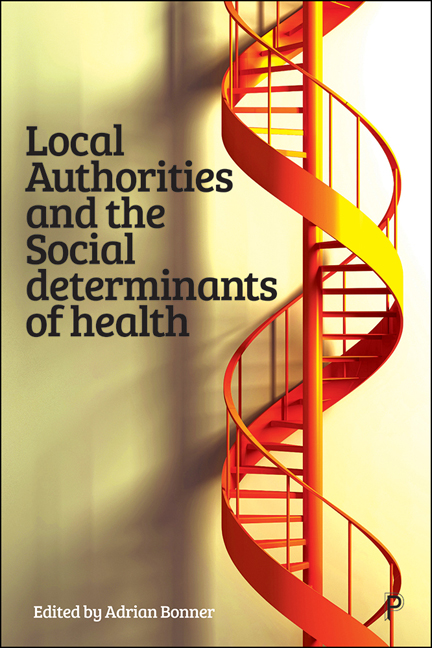Book contents
- Frontmatter
- Dedication
- Contents
- List of Figures, Tables and Boxes
- Notes on Contributors
- Acknowledgements
- Foreword
- Summary
- Introduction: Key Sociopolitical Changes Affecting the Health and Wellbeing of People
- Part I Health, Social Care and Community Wellbeing
- Part II The Role of Local Authorities in Promoting Health and Wellbeing in the Community
- Part III Local Authority Commissioning
- Part IV The Third Sector
- Part V Socio-Economic Political Perspectives
- Conclusion
- Appendix: COVID-19 Timeline
- Index
19 - Devolution and the Health of Scottish Housing Policy
Published online by Cambridge University Press: 25 March 2021
- Frontmatter
- Dedication
- Contents
- List of Figures, Tables and Boxes
- Notes on Contributors
- Acknowledgements
- Foreword
- Summary
- Introduction: Key Sociopolitical Changes Affecting the Health and Wellbeing of People
- Part I Health, Social Care and Community Wellbeing
- Part II The Role of Local Authorities in Promoting Health and Wellbeing in the Community
- Part III Local Authority Commissioning
- Part IV The Third Sector
- Part V Socio-Economic Political Perspectives
- Conclusion
- Appendix: COVID-19 Timeline
- Index
Summary
Introduction: housing in the Scottish parliament
Following the 1997 referendum, Scotland has had its own parliament since July 1999. The Scotland Act 1998, which established the parliament, specified those matters that would remain reserved powers of the United Kingdom (UK) Parliament, and devolved all remaining matters to the new Scottish Parliament. Housing, health, social care, education, most local authority services and civil law were fully devolved to the Scottish Parliament. The UK Parliament retained powers in the areas of employment, social security (including housing benefit) and migration, as well as on the common market for UK goods and services, consumer protection, and vehicle licensing. The UK's asymmetric model of devolution complicates comparison across its jurisdictions. The devolved powers of the Scottish Parliament are more substantial than those of the Welsh and Northern Ireland Assemblies, while Westminster retained authority over all matters for England (albeit with some devolution to the London Assembly and other combined authorities, such as Greater Manchester).
In 2019, the Scottish Parliament celebrated 20 years of operation and local authorities celebrated the 100th anniversary of the landmark Addison Act of 1919, which precipitated the expansion of council housing up to the 1980s. Just over half of the Scottish population lived in council or public housing by 1980, but the latter decades of the 20th century saw significant decline in the local authority landlord role across the UK, through sales to sitting tenants and lack of new investment (Stephens et al, 2019, p 111, Table 17b). Growth in the independent housing association (now registered social landlord) sector through stock transfers and new investment did not prevent the overall decline of the social rented sector continuing into the 21st century. Housing has, however, been a key area where the Scottish Parliament has delivered a distinct agenda from the rest of the UK, largely through local authorities and their partners.
Home and housing represent a key sphere in which local authorities can contribute to the health and wellbeing of their residents (Dahlgren and Whitehead, 1991), including the most marginalised groups in society. Scottish local authorities have strategic responsibility for assessing housing need and planning housing provision across all tenures, and all but six of Scotland's 32 local authorities remain council housing landlords. Prior to devolution, Scotland had some policy autonomy and Scots Law has long been distinct from the rest of the UK.
- Type
- Chapter
- Information
- Local Authorities and the Social Determinants of Health , pp. 365 - 384Publisher: Bristol University PressPrint publication year: 2020

